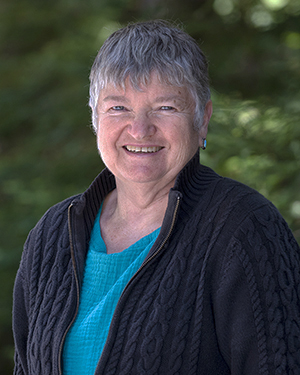Distinguished Research Professor Emerita of Anthropology Diane Gifford-Gonzalez was recently elected as a member of the National Academy of Sciences. Gifford-Gonzalez is a trailblazer in the field of zooarchaeology, which uses animal remains to gain new insights into the deep history of humans and animals.
“Being elected to the National Academy of Sciences is a great honor for any scientist—social, natural, or physical,” Gifford-Gonzalez said. “Being elected reflects the critical estimation of one’s contribution as a scientist by one’s peers and by the wider community of scientists in the Academy.”
The National Academy of Sciences is an organization that works to further science in America, and members are nominated and elected by their peers in recognition of their distinguished and continuing achievements in original research. Membership is a widely accepted mark of excellence in science and is considered one of the highest honors that a scientist can receive.
Gifford-Gonzalez explained that it’s especially exciting to receive this recognition as a zooarchaeologist, since zooarchaeology is still a relatively new subdiscipline of archaeology, having emerged since the 1960s. Gifford-Gonzalez has long been considered a prominent leader in zooarchaeology, whose research has become foundational to the field. She joined the UC Santa Cruz faculty in 1976 as one of the campus’s first faculty members in archaeology. She retired in 2015, but she still conducts research through her lab at UCSC and enjoys sharing her passion with undergraduate research assistants.
“I think bones are beautiful reflections of an animal’s adaptation and life history, and I enjoy the challenge of determining what skeletal part, what species, what age-at-death, and even in some cases, what sex of animal that a small fragment of bone represents,” Gifford-Gonzalez said of her work. “And once hundreds to thousands of such fragments are processed, one can begin to see in the data repeated patterns of human interaction with animals, whether it’s predation, domestic herd management, butchery, cooking, or deliberately altering landscapes and animal communities. So, we move from specimen to animal to human lives in landscapes with animals.”
Over her career, Gifford-Gonzalez has researched the domestication of animals and emergence of herding societies in Africa, as well as Indigenous foodways and land management in the Monterey Bay region, in collaboration with the Amah Mutsun Tribal Band. She has served as president of the Society for American Archaeology, where she helped to create a scholarship program to support recruiting historically underrepresented students into the field. She has received teaching awards from the UC Santa Cruz Alumni Association and the Academic Senate Committee on Teaching.
“I am proud to have helped launch many motivated students into productive, impactful careers in archaeology, both academic and public-facing,” she said.
Gifford-Gonzalez has always been particularly focused on supporting student success. She’s personally familiar with the struggles that can come with being a “non-traditional” student. She started college at a time before financial aid and says her parents took out a bank loan for three times her father’s annual salary in order to send her to UC Berkeley. She wishes her parents were still alive today to see her elected to NAS, but she hopes that her story can prove to today’s students what they are capable of.
“Because of my economic background and my gender, I’ve struggled with imposter syndrome,” she said. “So, to other students who have an inner voice telling them they don’t belong here, I’ll say that, after 60 years, my inner voice still is there, but it gets fainter and fainter each time I tell it, ‘thank you for sharing,’ and then move on with continuing to pursue what I love.”




